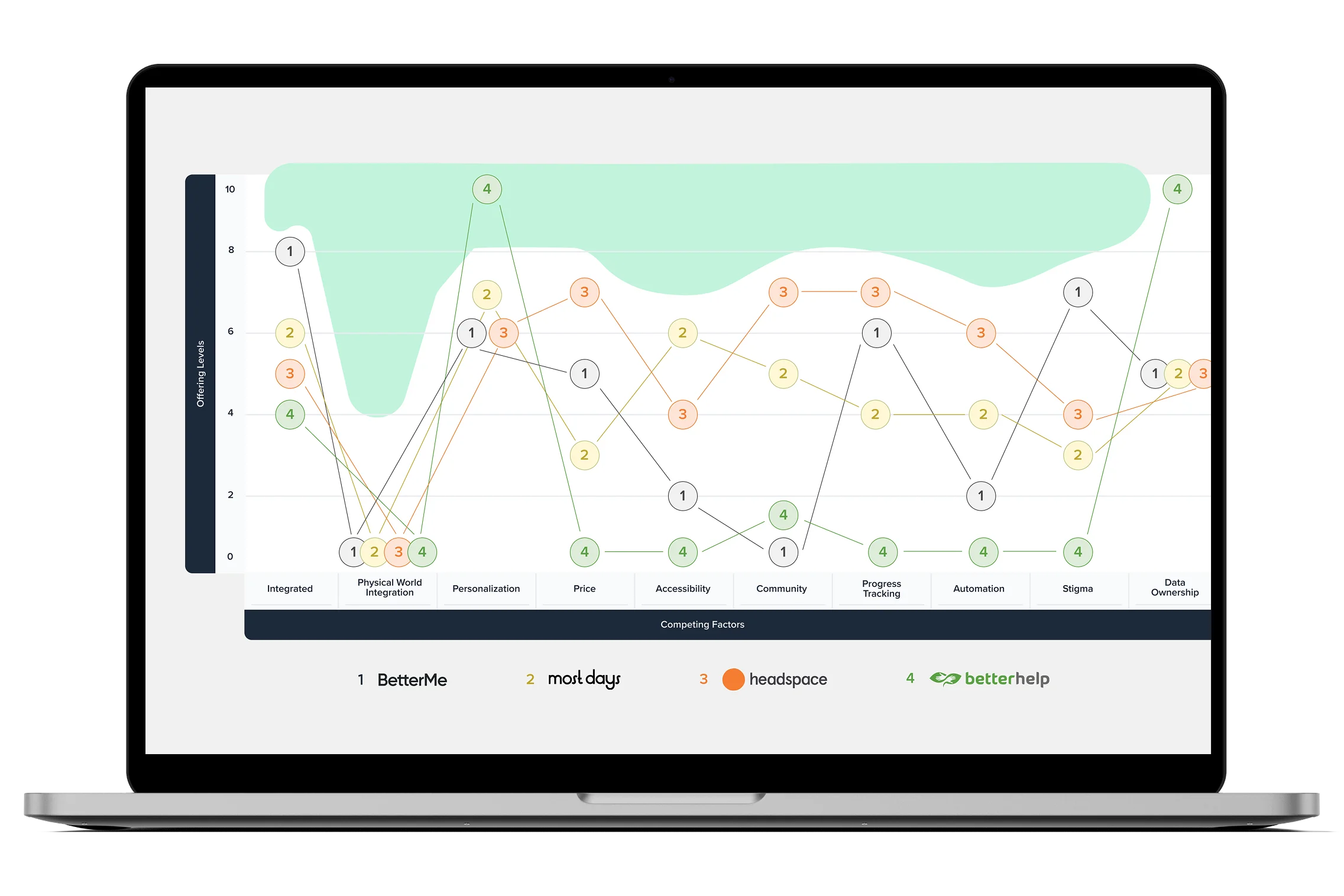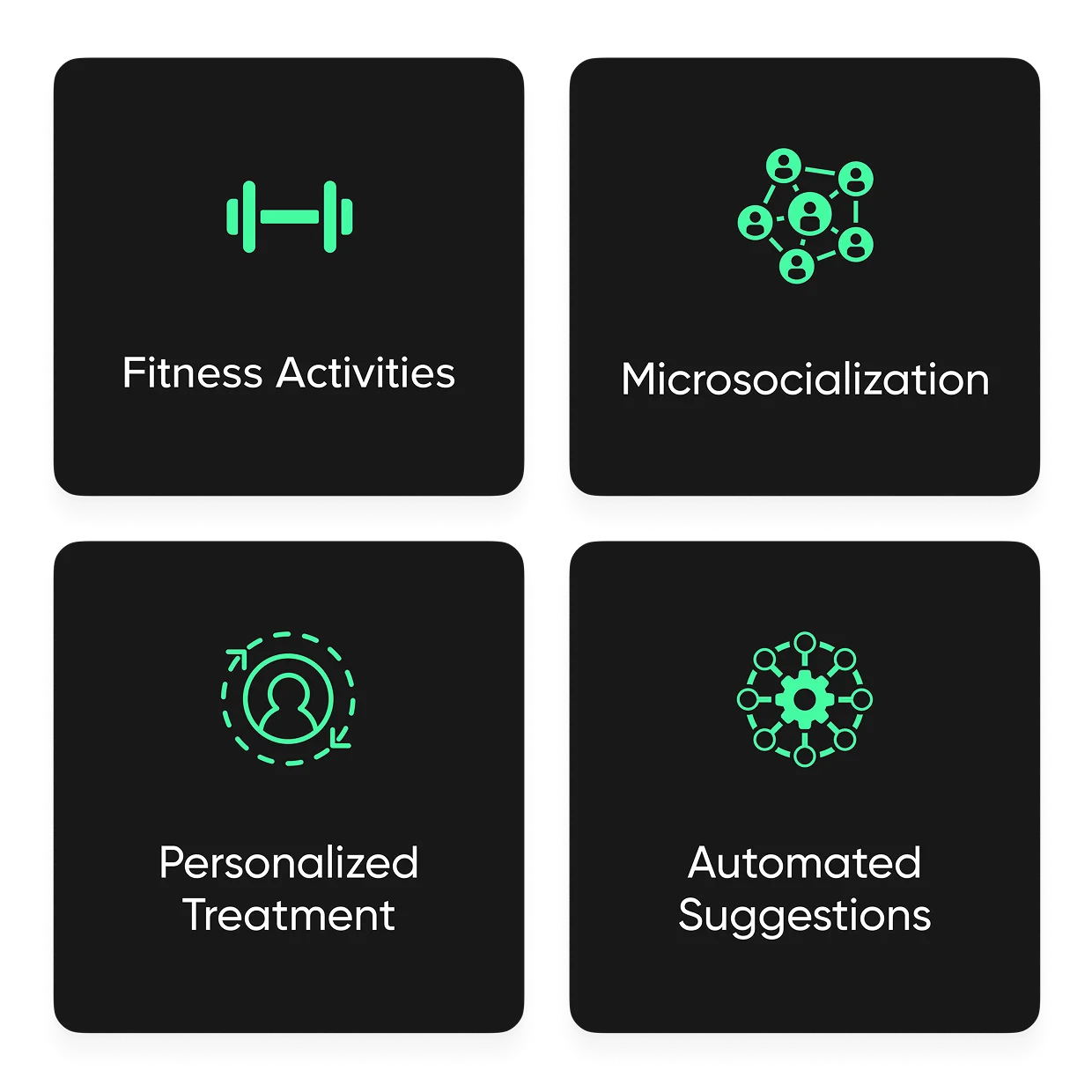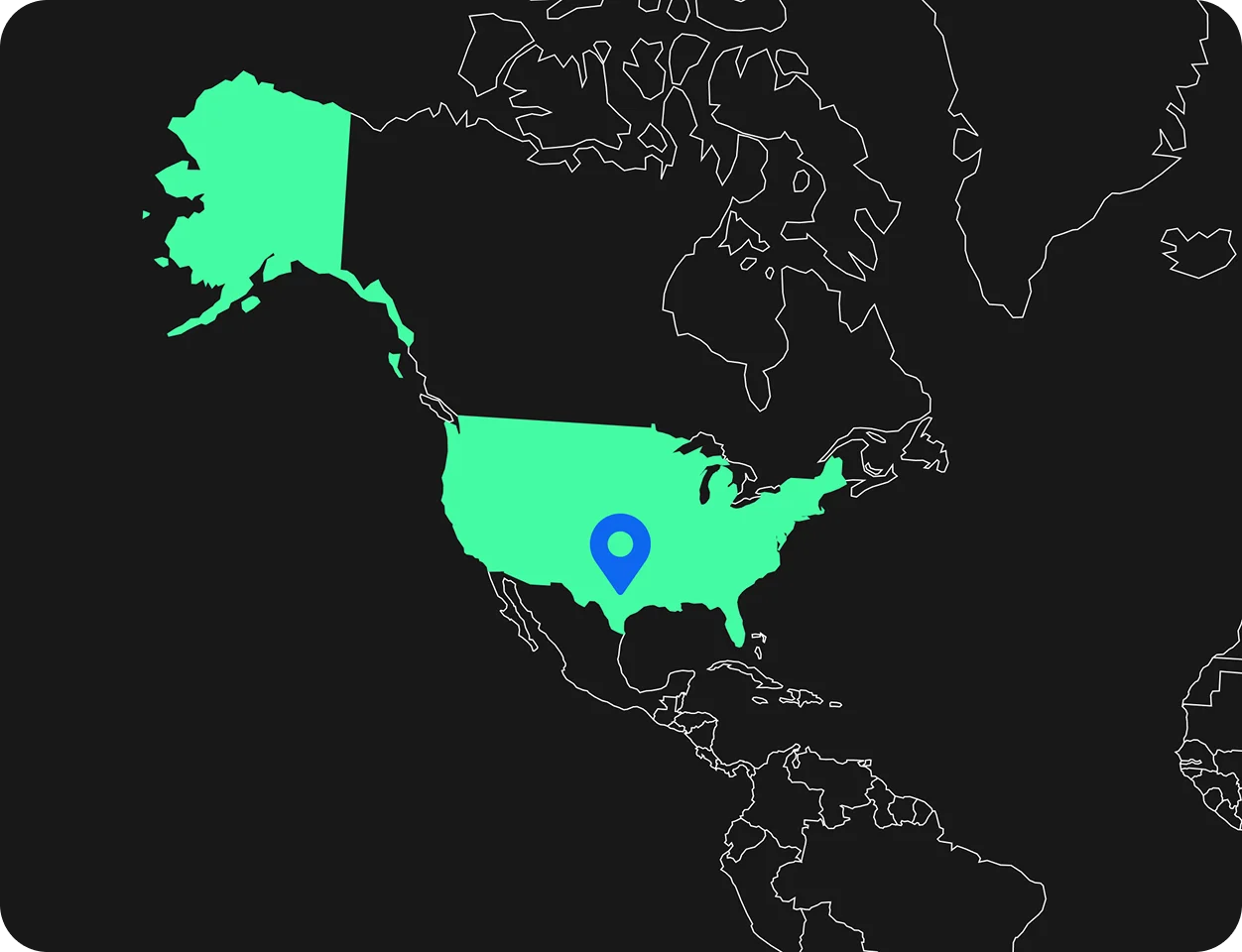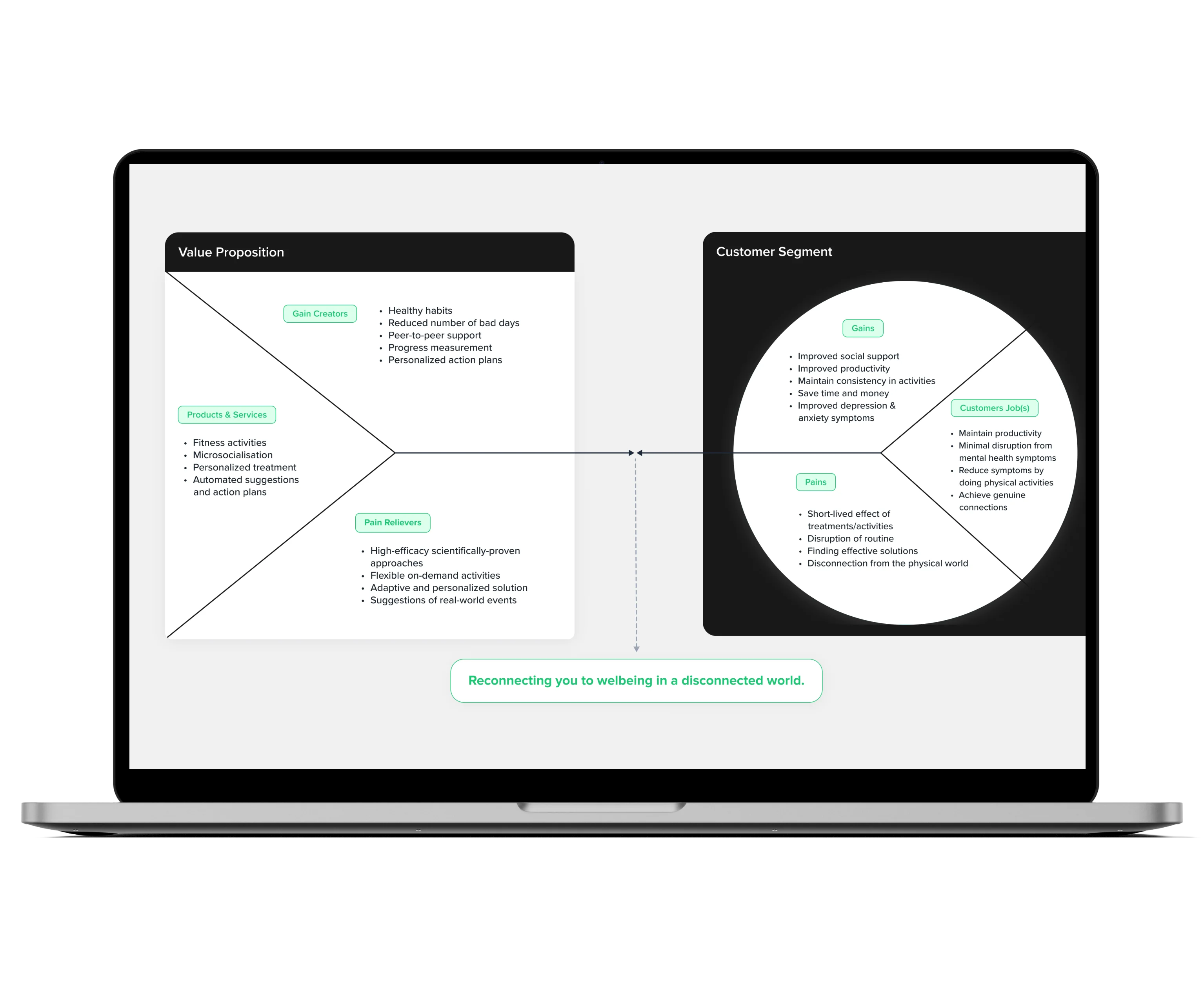
Aypex is a mental wellness initiative that leverages movement and fitness as treatment for depression and anxiety.
Conducted with Linnify’s validation process, the project sought to determine whether there was sufficient market need and willingness to adopt an integrated solution combining physical exercise, mindfulness, and community support.
The validation process included surveys, interviews, competitor analysis, and market sizing to confirm problem-solution fit and define the path forward for development.
Depression and anxiety remain pressing issues worldwide, with:
Existing solutions, from therapy to meditation apps, address only parts of the problem, leaving space for integrated, personalized solutions.

The validation process concentrated on the U.S. market, with a specific focus on young adults aged 18–24 in Texas. This segment represents a key audience due to their high digital engagement and growing need for accessible mental wellness solutions.
Within this demographic, awareness of mental health challenges such as anxiety and depression is increasing, alongside a willingness to explore new approaches to treatment.
Their openness to mobile-first wellness tools reflects broader cultural trends in the U.S., where digital health adoption is rising and fitness is often integrated with mental well-being practices.

Depression and anxiety represent some of the most pressing health challenges of our time, affecting over 70 million people in the U.S. alone.
Despite the size of this problem, current solutions often leave critical gaps.
Patients experience:

Aypex set out to fill this gap by designing an integrated digital wellness platform that combines the proven benefits of physical activity with accessible, personalized support.
The vision was to create a tool that not only complements existing treatments but also makes mental health care more holistic, consistent, and engaging.
The proposed solution for Aypex was an integrated digital platform offering:

Linnify led the end-to-end validation process, from understanding the problem space to shaping the foundation of a viable product concept.
Our team collaborated closely with the founders to clarify the core hypothesis, identify early adopters, and test assumptions through qualitative and quantitative research.
We structured the discovery phase around market viability, user desirability, and product feasibility, ensuring that every insight directly informed business and design decisions.
This process helped define the product’s positioning, the key differentiators within a crowded wellness market, and the measurable outcomes for both users and stakeholders.
The Linnify team combined design thinking with startup validation expertise, ensuring insights were both data-driven and human-centered.
Key findings included a clear link between physical activity and improved mental wellbeing, and the validation of disconnection from the physical world as a major factor intensifying symptoms.

Built a validated foundation for further product development, with clear early adopter segment definition.


The validation confirmed that Aypex addresses a real, pressing problem with significant market demand.
By focusing on the 18–24 demographic in the U.S., Aypex established both a target audience and a set of validated assumptions around physical activity and disconnection from the physical world.
Through this project, Linnify deepened its expertise in mental wellness product validation, learning how to quantify willingness-to-pay, map adoption channels (universities, alumni groups), and identify critical differentiators versus competitors.
The insights provide a clear roadmap for building a holistic digital wellness platform with strong adoption potential.


To confirm whether integrating physical activity, mindfulness, and social support into a digital solution could effectively address depression and anxiety.
Through a combination of quantitative surveys (150+ respondents), qualitative interviews (10 participants), competitor research, and market analysis.
72% of respondents were willing to pay for an integrated solution, and 10/10 interviewees confirmed the role of physical activity in improving mental wellbeing.
Initially, U.S. young adults aged 18–24, particularly students and recent graduates experiencing anxiety or depression.
To build on validated insights by developing a product prototype, securing partnerships with universities, and testing adoption strategies in target markets.
Linnify’s validation process combines lean market research, customer interviews, quantitative surveys, competitor analysis, and business modeling to test assumptions before building a product. The goal is to reduce risk, validate demand, and uncover the strongest path to market.
By combining both quantitative methods (surveys, market sizing, data analysis) and qualitative methods (interviews, customer journeys). This dual approach ensures that insights are both statistically relevant and human-centered.
Validation reduces the risk of building a product nobody wants. It provides clarity on the target market, willingness to pay, and unique value propositions, saving time, resources, and investment down the line.
Typically, 4–12 weeks, depending on the scope of research and the number of experiments needed.
Yes. The process is adaptable and has been applied in healthcare, education, finance, mobility, and wellbeing, always tailored to the client’s market and audience.